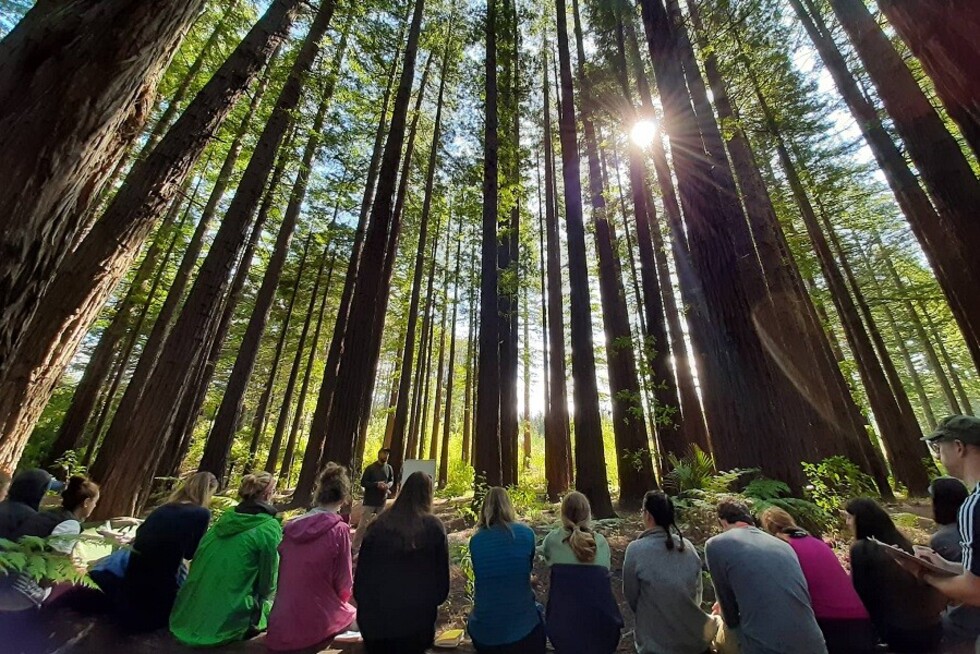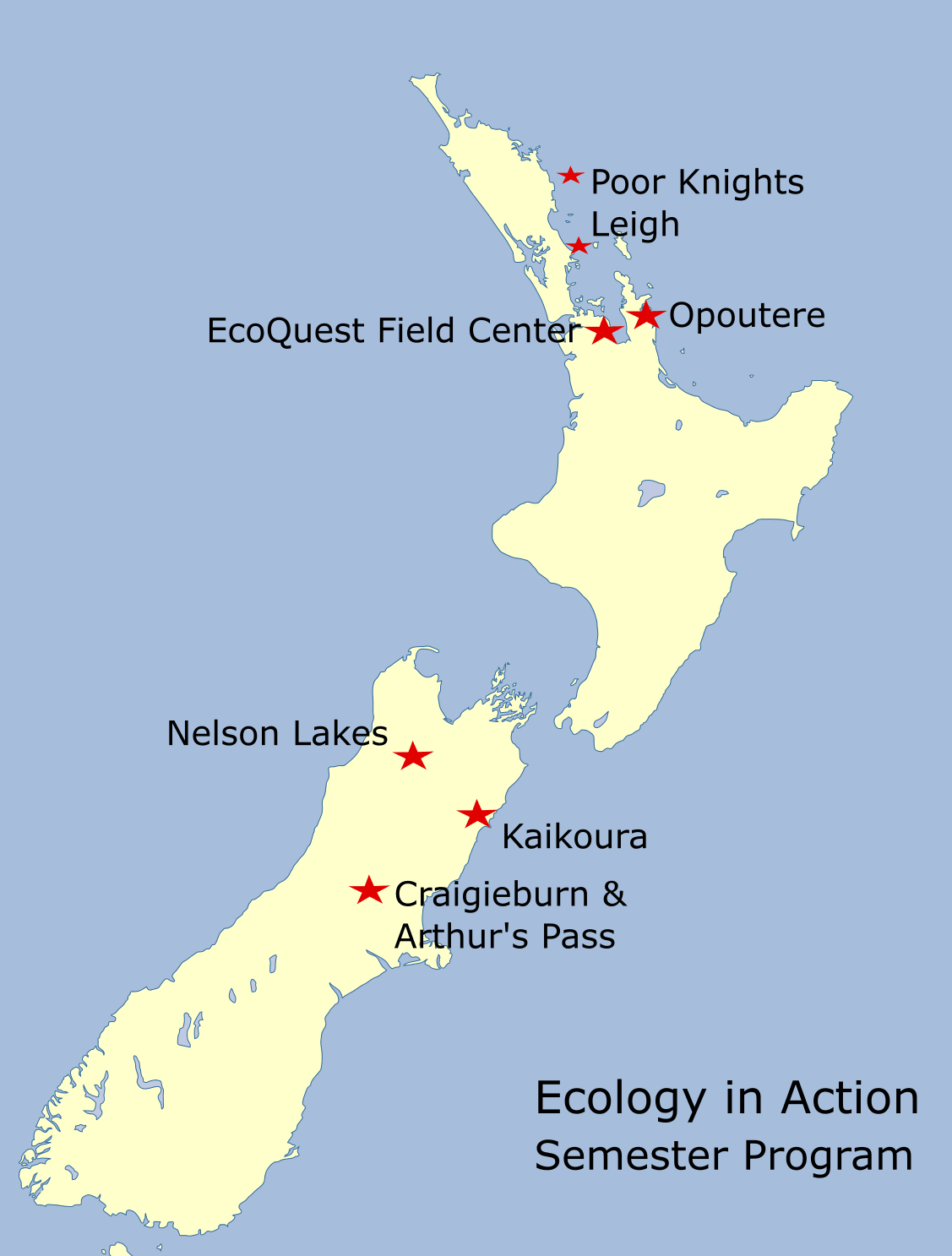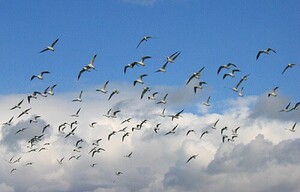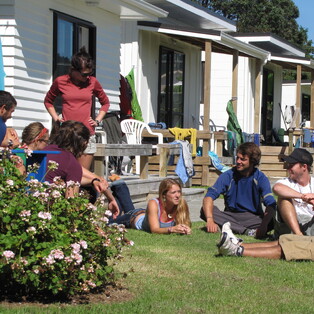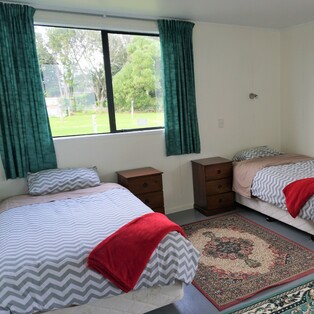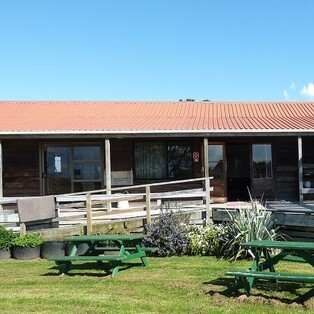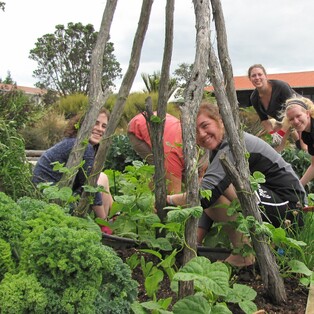Ecology in Action - Semester Program
Our interactive field-based programs incorporate hands-on, experiential learning opportunities and a focus on both practical skills and conceptual thinking.
EcoQuest gives students the chance to gain and develop transferable knowledge and skills to make a difference anywhere on the globe.
Directed research projects are comprehensive field-based studies that equip students with the knowledge and skills required to become effective, modern researchers. All research projects in which EcoQuest engages, have scientific and societal relevance. Projects enable students to make significant contributions to (often longitudinal) research, benefiting the environment, local communities, collaborators and partners.
Learning Journeys
Each week has a theme, and all learning opportunities are closely tied to these themes, and to the locations where the program is delivered.
The first week of each program is dedicated to orientation and induction procedures, team building exercises, and the introduction of the academic program. During the following weeks, students learn about the forces and influences (geological, cultural and political) that shaped New Zealand as we know it today and gain an understanding of topical resource management issues.
Place-based learning is used deliberately to support investigative learning. The interactive and interdisciplinary nature of the programs provide students with a unique opportunity to experience first-hand how planning, policy and science interact in real world settings.
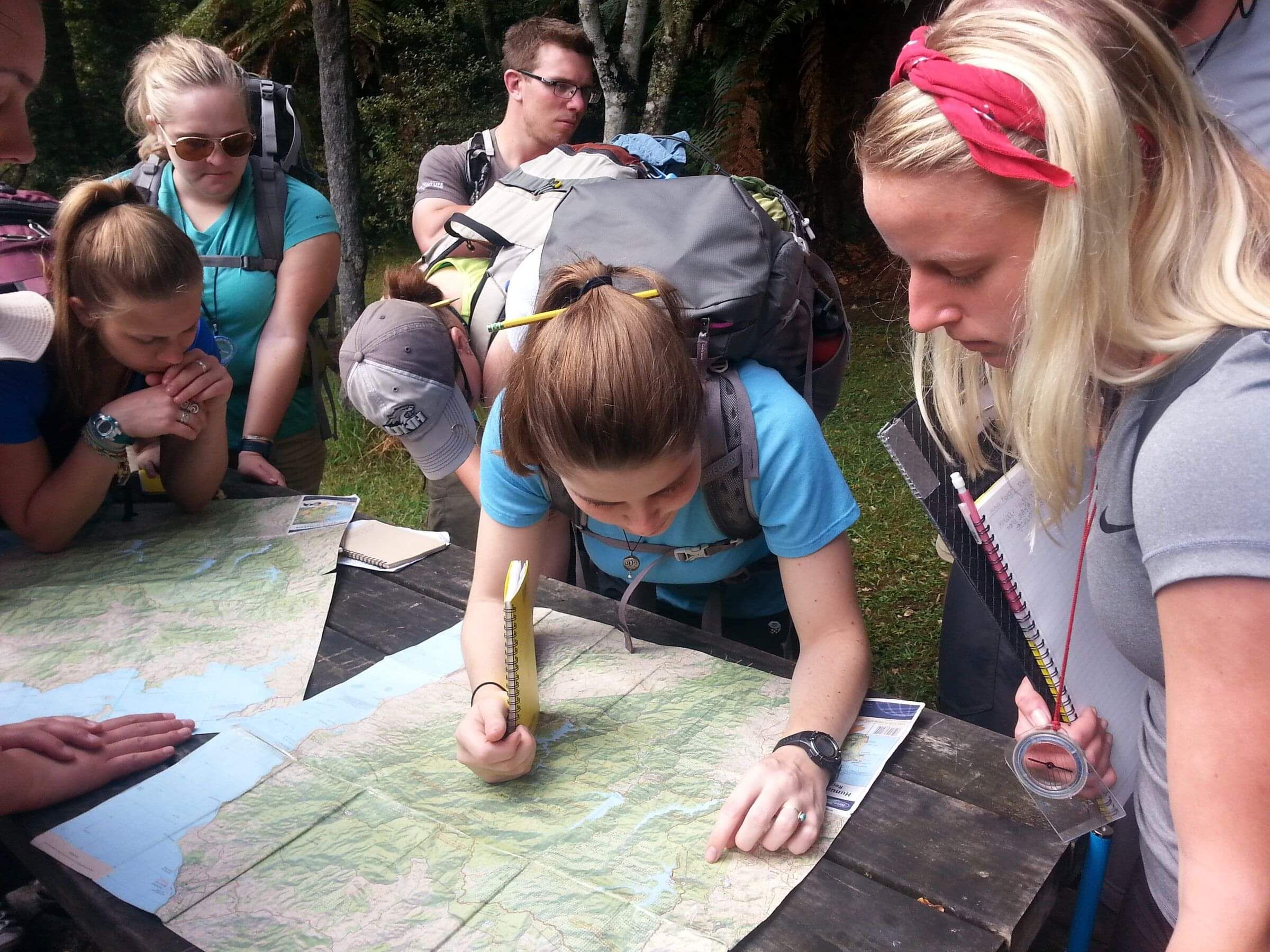
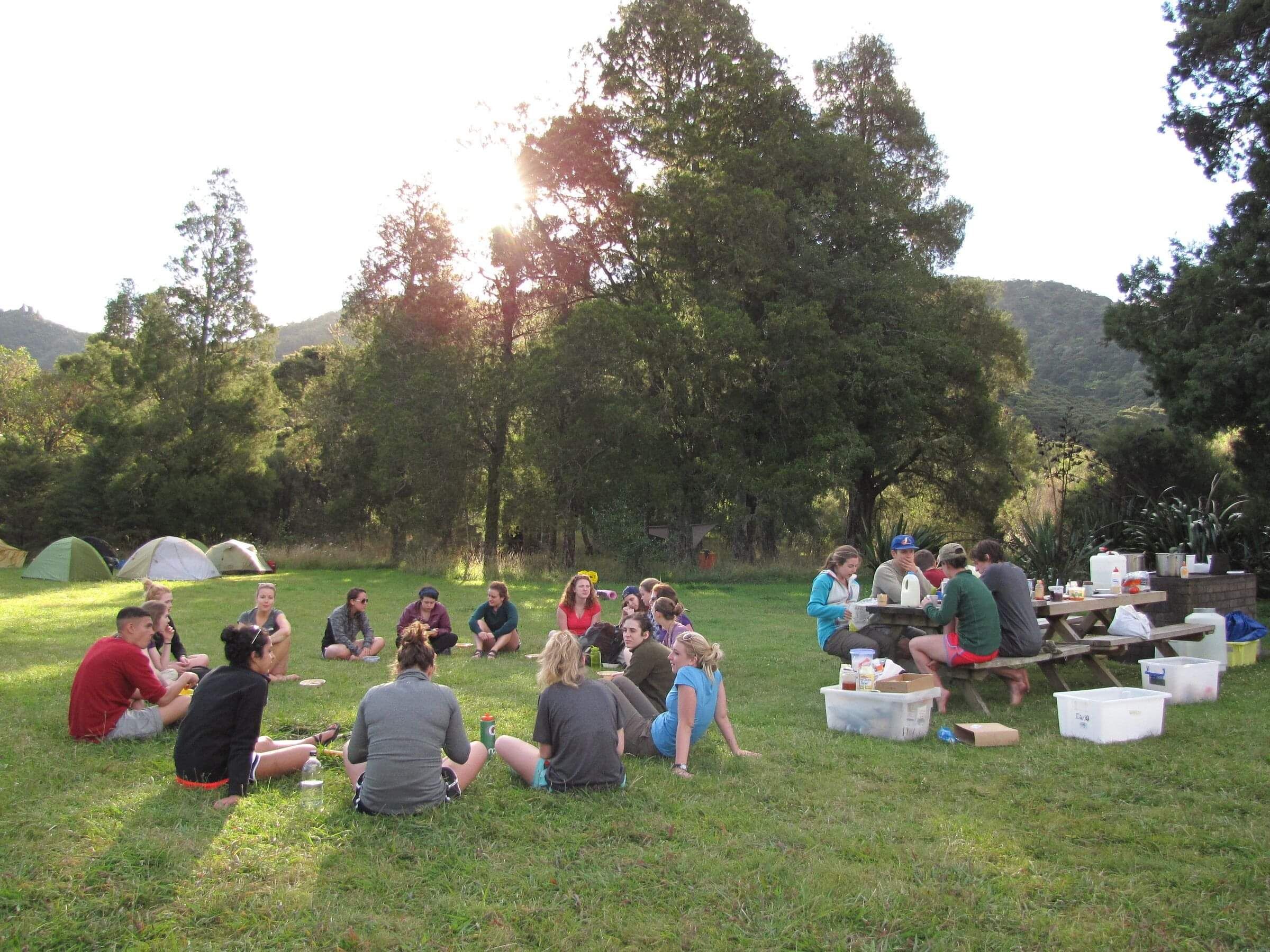
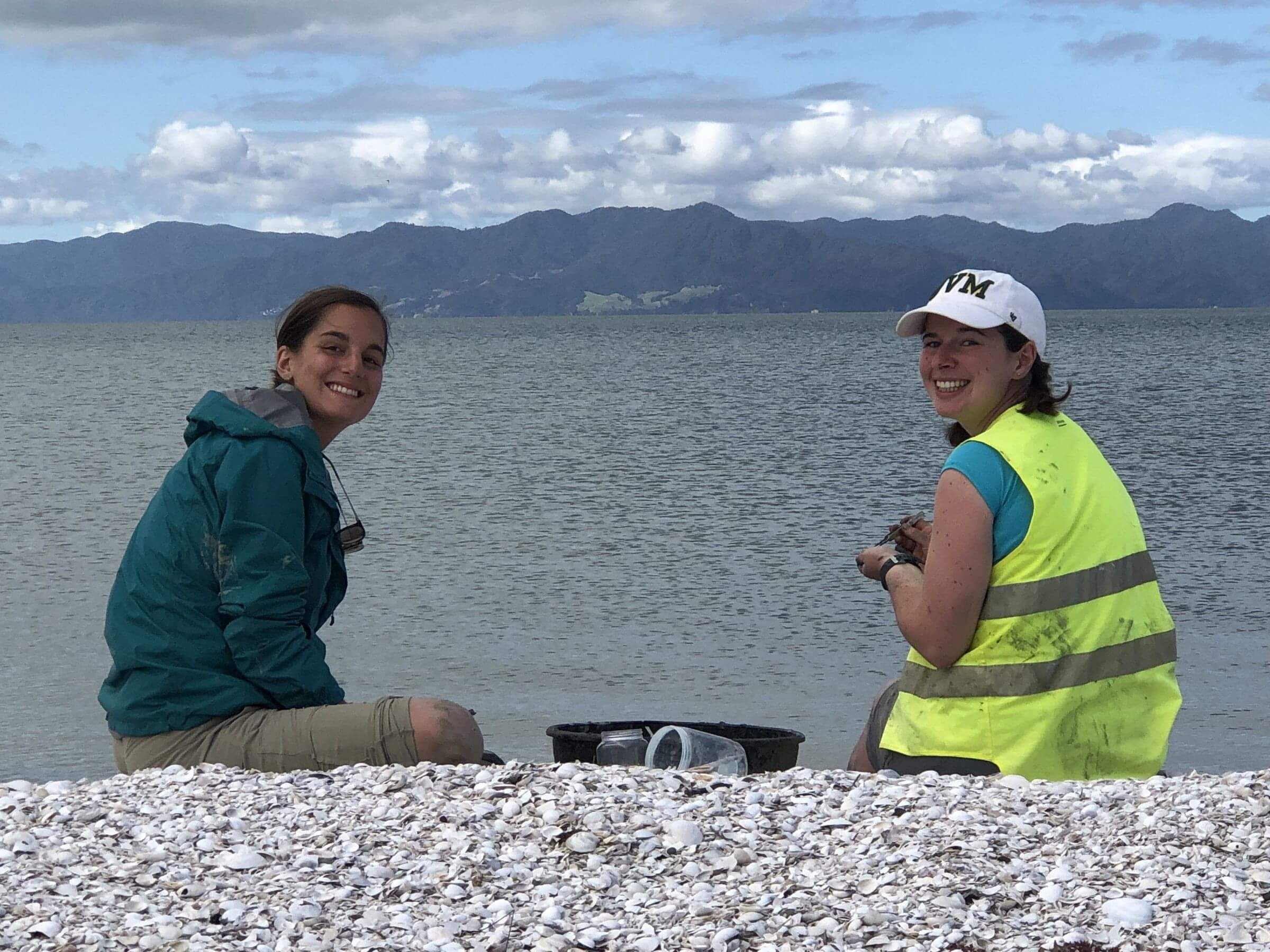
Extended Field Trips
The Ecology in Action program involves a fair amount of travel. Students explore coastal and marine ecosystems, land-use issues, and restoration projects at locations near EcoQuest, as well as further afield. We build on and apply this knowledge though field exercises in a variety of settings. There are also several opportunities for students to learn about community inputs for conservation outputs.
We have at least one overnight stay on a marae during each semester, which allows a glimpse into Maori culture and traditions.
The semester includes a 3-week program component on the South Island. The main foci during these weeks are options for sustainable eco- and nature-tourism, alpine ecology and resource management (water and/or minerals).
Directed Research Projects
The last 4-5 weeks of the semester program are reserved for Directed Research Projects. In close consultation with faculty, students focus on projects that explore specific aspects of ecology and resource management.
Students carry out field investigations, and alongside by faculty, analyse and interpret results. A written project report and an oral presentation of your findings are the final learning outputs for the semester.
All projects offered by EcoQuest have scientific and societal relevance. Directed Research Projects contribute information relevant to on-going ecological monitoring and research, restoration and resource management initiatives of local importance.
There absolutely is adequate time to study and enjoy the surroundings, provided students manage their time effectively.
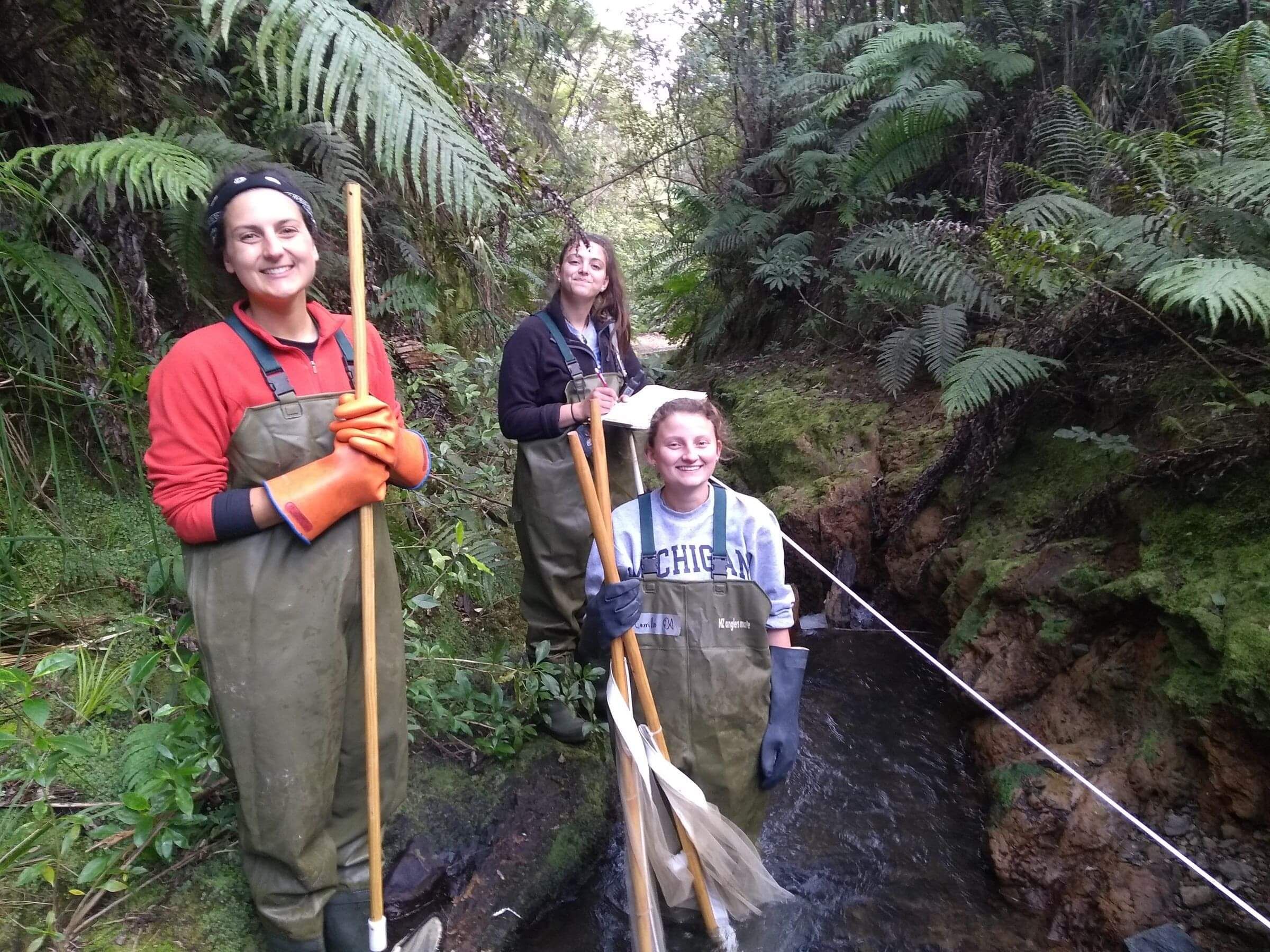
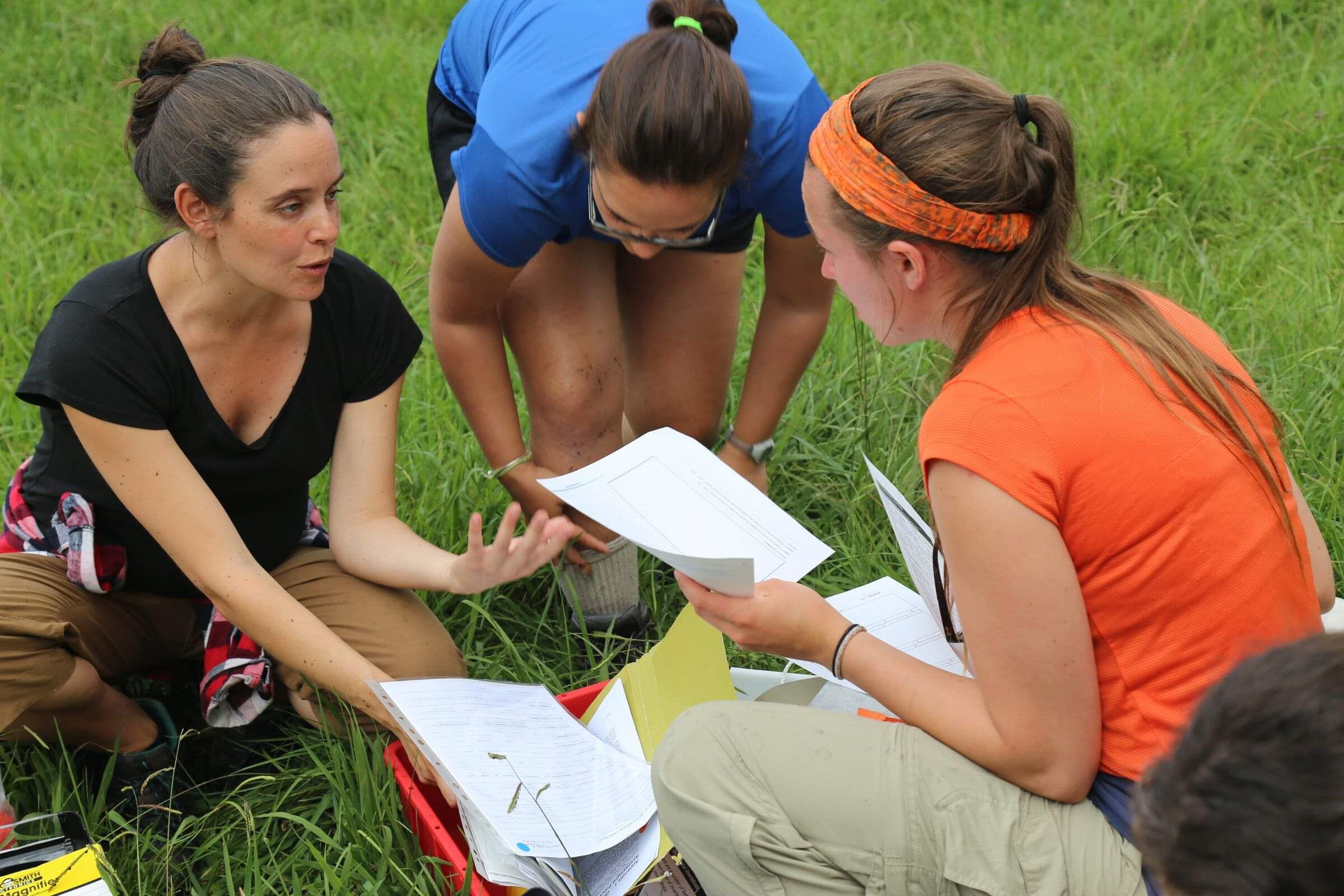
Field Centre
The Ecology in Action program is based at our Field Centre on the western shore of Tikapa Moana the Firth of Thames, in the small rural coastal settlement of Whakatīwai (one hour southeast of Auckland), in the rohe (tribal territory) of Ngāti Paoa & Ngāti Whanaunga, just 300 metres south of the Wharekawa Marae.
The field centre is bordered by the Whakatīwai stream to the north, and the Hūnua ranges form the backdrop to the west. We look east across the Firth, a shallow marine embayment, to the rugged hills of the Coromandel Peninsula
The home base for the South Island SAFSA program is in Golden Bay at The Sandcastle in Pohara, in the rohe of Ngāti Tama, Ngāti Rārua and Te Ātiawa and close to Onetahua marae. From here it is just a 500m walk to the sandy beach of Te Tai-o-Aorere Tasman Bay.
EcoQuest has established a vibrant sustainable learning community. Since programs are residential, students and some staff live on site.
Student accommodation is in cabins with 2-3 students per cabin and there are shared bathroom facilities. A separate house provides a student lounge and several rooms for study spaces. The wharekai (literally the eating house) is our main communal building which doubles as a classroom and dining room. This building is situated to make the most of the open space and sun, and students often spend time outside on the large deck. The gardens provide lots of room for play, lounging in hammocks, and for growing vegetables and fruit. There is on-site accommodation for some staff and visiting faculty.
The field centre is a microcosm of decision making, as well as understanding and modelling sustainability. Students are involved in growing food, maintaining the plantings (food for people, food for native species, biodiversity values, amenity values).All chores are shared (e.g. cooking, cleaning, caring for the grounds and equipment).
Students are an active part of a learning community where sustainability is a guiding principle. They are empowered to become catalysts for change and for sustainable living.
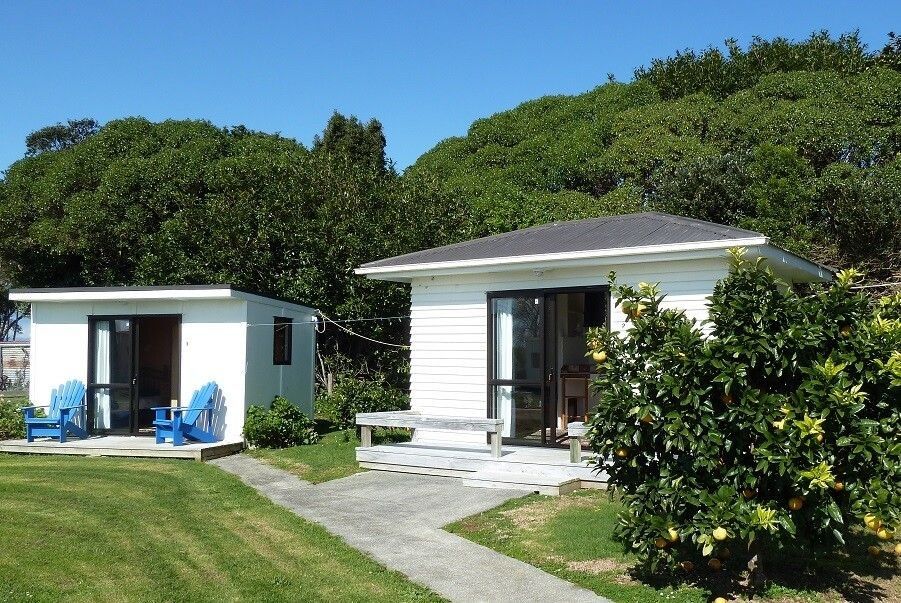
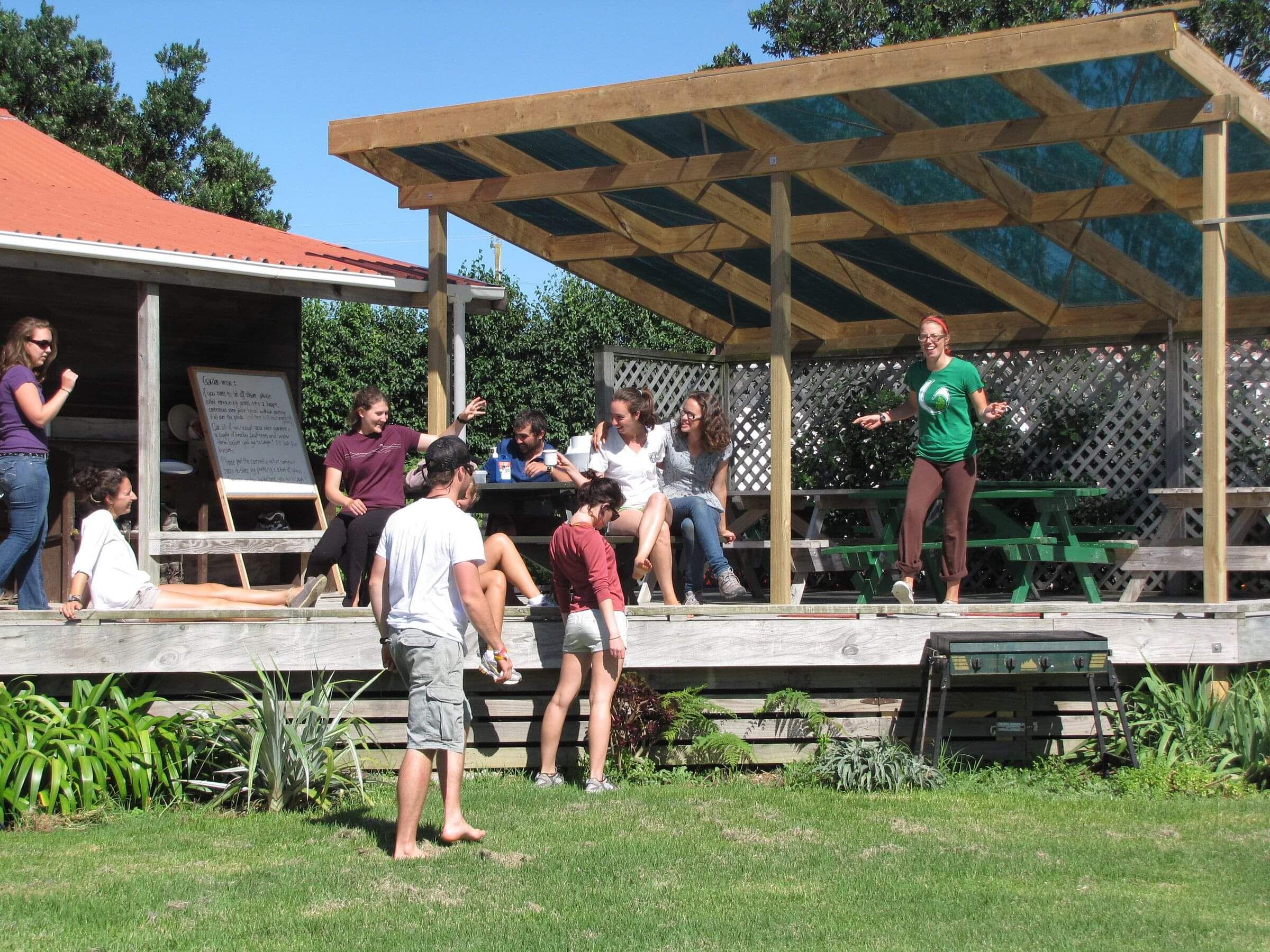
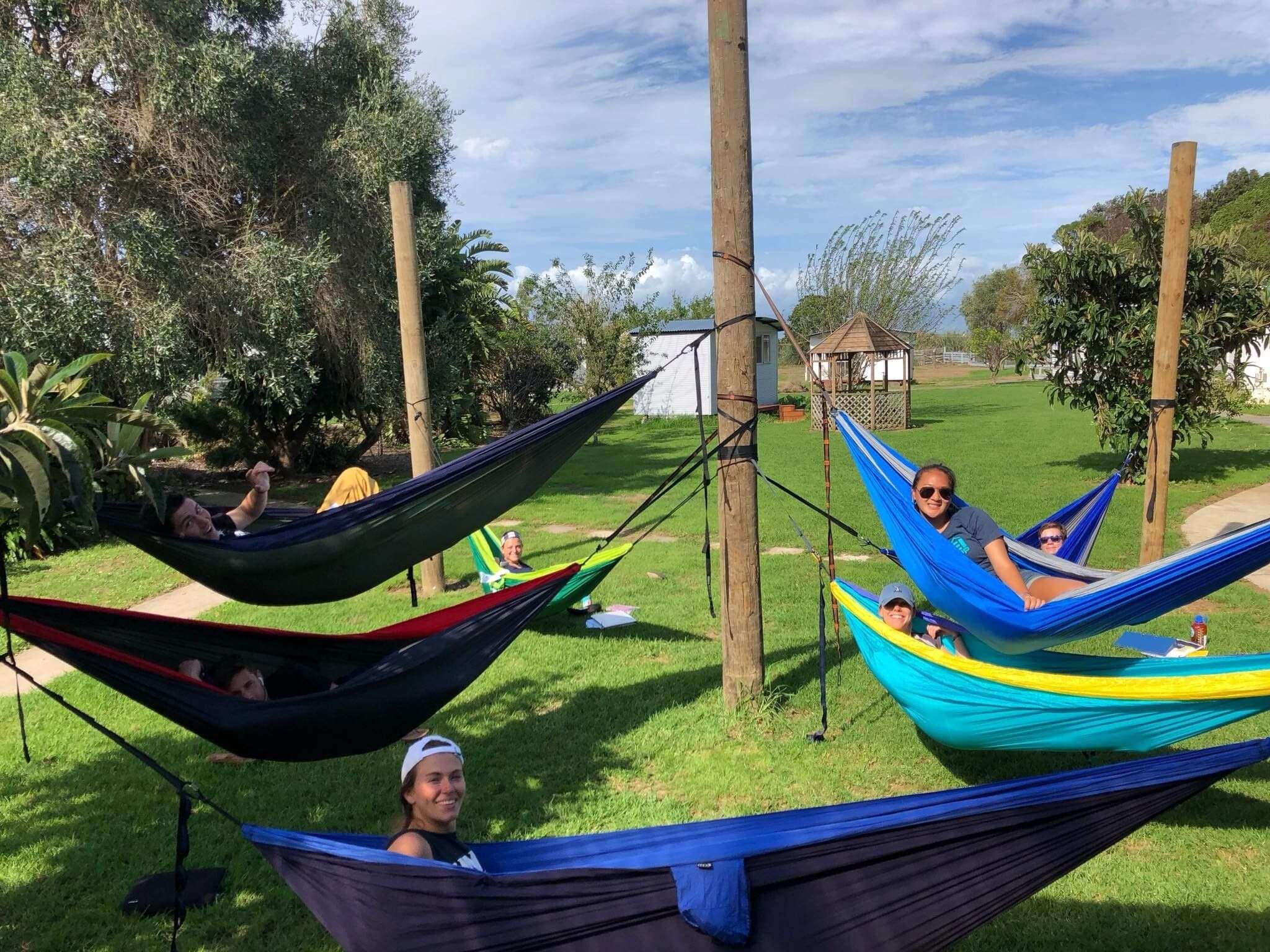
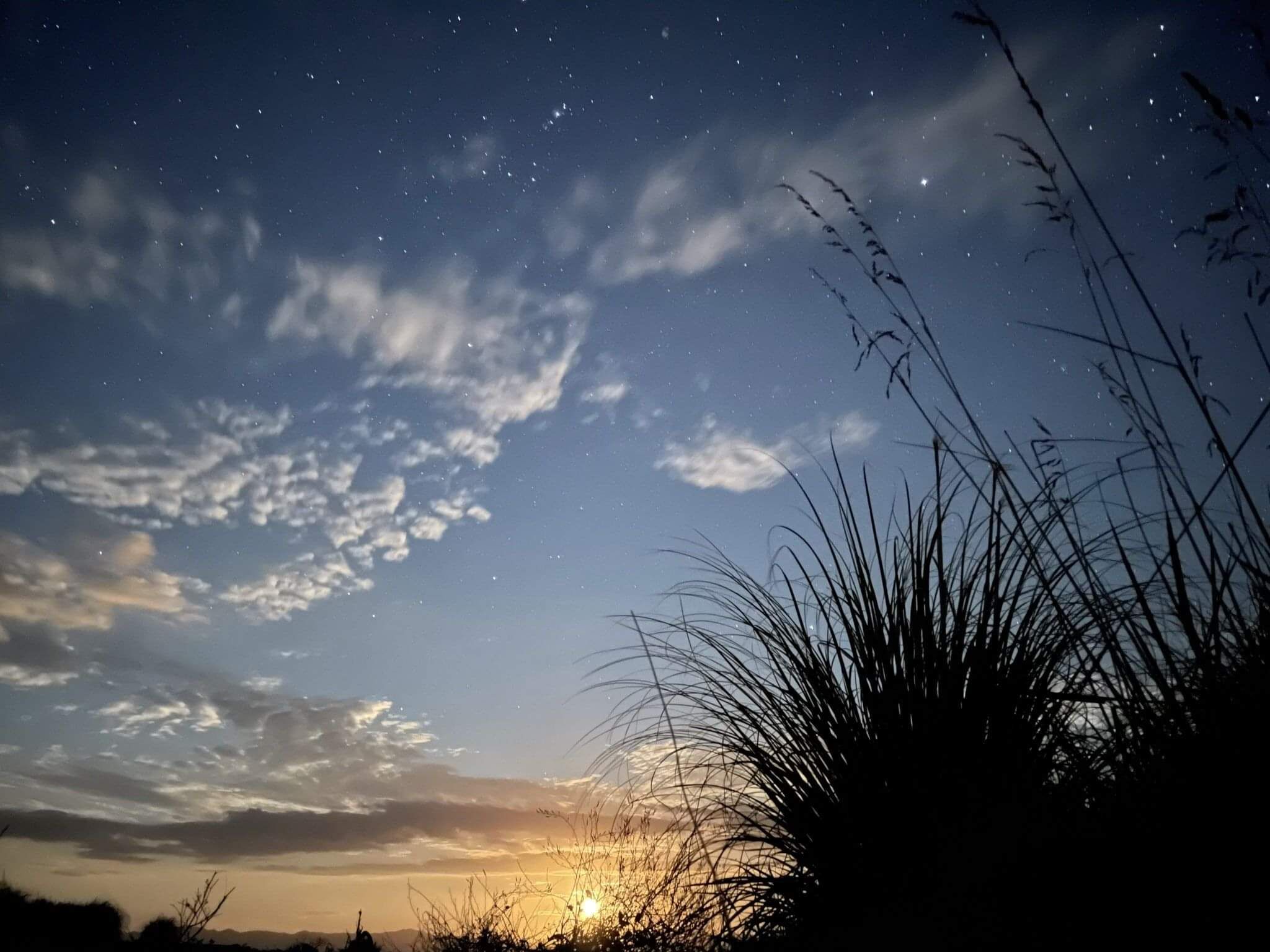
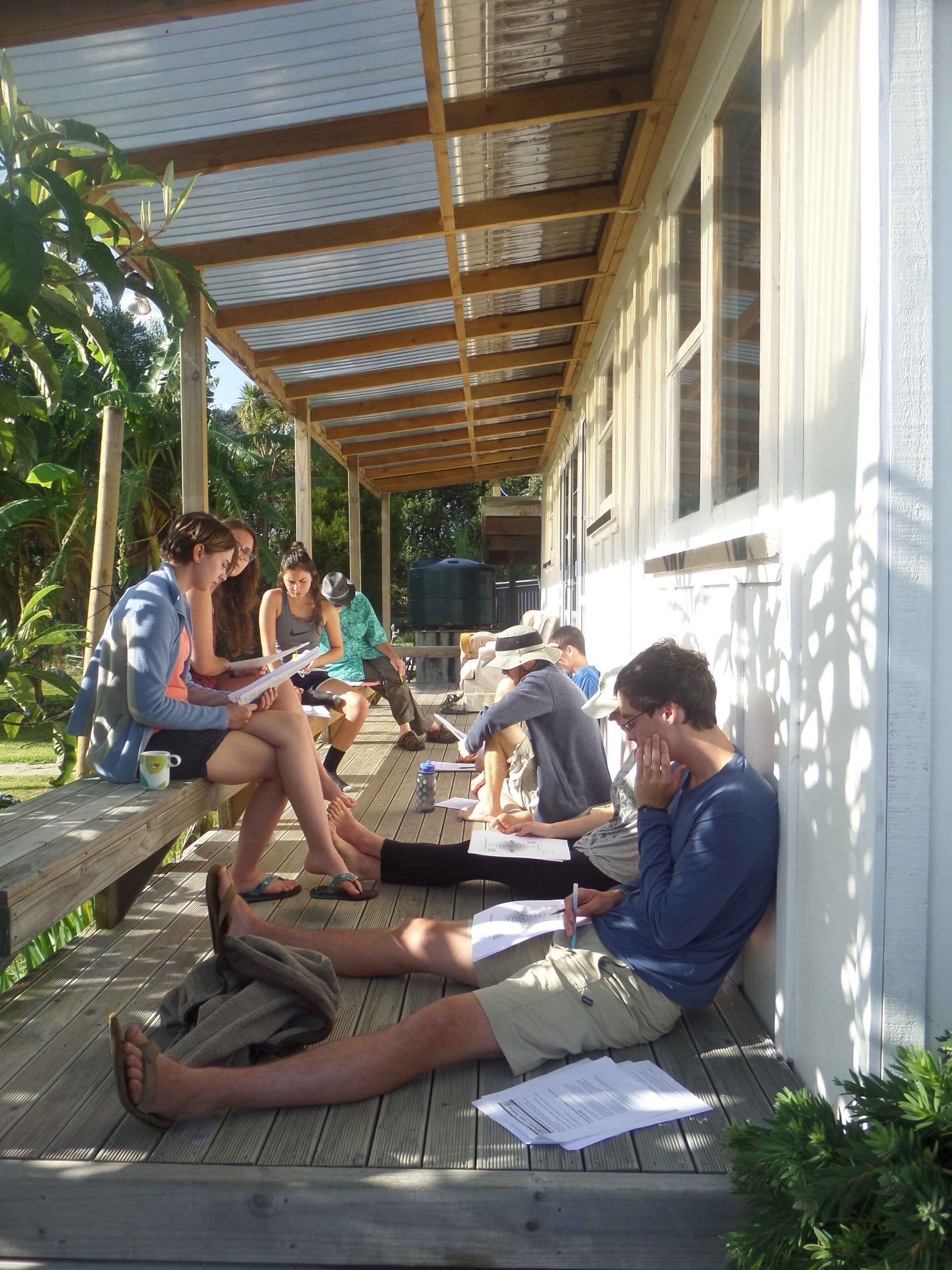
Social Activities
There are many opportunities for social activities, both at and away from the field centre.
The hiking trails in the nearby Hūnua Ranges are popular, and kayaking ranks highly.
At EcoQuest, there is space for volleyball, soccer and Frisbee as well as a climbing wall. It is also just a short bike ride to the local store.
Within three hours of travel from EcoQuest, you will find protected offshore island sanctuaries, varied coastal-marine environments, extensive rural landscapes, wetlands, volcanoes and forested mountains, as well as towns and cities.
During non-program time students often take the opportunity to explore national and regional parks, reserves, beaches, and towns further afield ,and we are only an hour from Hobbiton!
Courses
NR660: Ecology and Biogeography of New Zealand
5 Credit Hours. Permission, Junior Standing. (Coreq: NR661, NR662, NR663)
Course Description
From a bioregional perspective, students learn about the geographical, geological, biological, and human ecological processes that have shaped the distribution of species and biotic communities in present day Aotearoa New Zealand. The course emphasizes interactions and interdependencies among marine, freshwater and terrestrial ecosystems.
Students will
- gain a fundamental understanding of specific attributes of New Zealand’s insular evolutionary history, its diverse landscapes and unique biota, and the impacts of recent human habitations.
- develop field skills (classification, mapping, habitat assessment, field identification, sampling) as they study community ecology of representative ecosystems and the effects of human influences on these systems.
- identify and understand inter-relationships of important taxonomic groups, map and quantify habitats and species-habitat relationships, assess impacts of gradients on patterns of species abundance and distribution, and track the effects of exotic species on native ecosystems.
This course, along with NR661 and NR662, is taught through integrated modules of lectures and field exercises.
Learning outcomes
A basic understanding of representative New Zealand ecosystems and how they function;
- An awareness of the impacts of some human activities on native ecosystems;
- Acquisition of field identification skills (focusing on key species), and learning to apply these in assessment of the relative quality of key habitats;
- A specific understanding of drivers, food webs and life cycles of key ecosystems through case studies: coastal/marine, estuary/saltmarsh, freshwater, native/exotic forest, agricultural, sub-alpine;
- Development of biodiversity awareness and assessment skills;
- Development and application of skills needed to conduct basic research and monitoring, including observational and sampling techniques, and a solid working knowledge of appropriate field practice/procedures.
NR661: Restoration Ecology and Ecosystem Management in New Zealand
4 Credit Hours. Permission, Junior Standing. (Coreq: NR660, NR662, NR663)
Course Description
Examination of ecological opportunities and constraints to be considered to ensure sustainable use of the natural resources in and around the Hauraki Gulf and the Hauraki / Coromandel / catchment (watershed). Students will investigate resource planning and management in this ecosystem. In addition, they will have the opportunity to study the coastal ecology of Kaikōura, and native forests and sub-alpine ecology in the Central and West Coast regions of the South Island. We examine the impacts of resource management on natural and human communities, conflicts among various user groups and systems for their resolution. Particular emphasis will be placed on the management of forests, agricultural lands, near-shore marine areas, the coastal zone, and special wildlife management areas. Aesthetic, ethical and economic implications of various management strategies will be examined and debated, with participation by representatives of key resource management agencies and interest groups.
Learning outcomes
- A basic understanding of the functioning of some representative and vital ecosystems, ranging from only slightly altered, to severely modified ones;
- An appreciation of the ways in which good baseline scientific research and regular monitoring of critical physical, chemical and biological forces can be effectively used in the development and operation of sound resource management practices;
- An awareness of the public structures and interest groups involved in today’s overall resource management system in New Zealand: the roles and responsibilities of each, and how they interact;
- Experience of working in the field with Māori cultural & conservation groups, and gaining an understanding of the spiritual/cultural values and philosophies behind traditional approaches to resource management;
- A clear understanding of Marine Reserves, Environmental Indicators (EI) Protected Natural Areas (PNA), and Biodiversity Strategies and how they are likely to influence resource management actions in New Zealand in the future;
- Development of field practice skills (design of efficient work plans, sampling techniques, appropriate data analysis and effective team management).
NR662: Environmental Policy, Planning and Sustainability in New Zealand
3 Credit Hours. Permission, Junior Standing. (Coreq: NR660, NR661, NR 663)
Course Description
In this course, students will assess the impacts of the Resource Management Act (1991) (RMA) on the ecology, economy, and socio-political environment in New Zealand. We examine issues related to the historical exploitation of New Zealand’s resources, indigenous use issues and conflicts, new threats posed by modern society, and the ways in which New Zealand and the world can move toward a sustainable equilibrium between people and nature. We will look at the factors that have historically determined the quality of New Zealand’s natural environments (low human population density, primary producer economy, relatively enlightened social policies, traditional culture, etc.). Speakers may be from industry (business, agriculture, fisheries, forestry, and manufacturing), Department of Conservation (DoC), the Auckland, Waikato and Canterbury Regional Councils, some district councils, Iwi (Māori) representatives and others from diverse economic, social and cultural backgrounds. Resource consent processes at district, regional and national levels will be studied on a case by case basis and appraised in terms of their relative economic and social costs and their effectiveness in settling issues and achieving sustainability. Various New Zealand administrative/political structures such as the Ministry for the Environment, DoC, local authorities, Crown Research Institutes, and Treaty of Waitangi Fisheries Commission will be evaluated for their effectiveness in dealing with key issues, including the philosophical and ethical context related to national and global environmental policy and action. Students will be challenged to consider multi-disciplinary, consensus-building and practical plans of action for the development and maintenance of policies that are, at once, economically, socially and environmentally sustainable.
Learning outcomes
- A basic understanding of how environmental policy is formulated and carried out at different levels of government, and of the principal influences that cause it to change over time;
- Development of the students’ conceptual thinking abilities in appreciating the complex global interrelationships among the multiple forces of the natural world, and the different ways that human cultures and governments deal with these in terms of real and perceived requirements of people and countries;
- Sharpening of abilities to seek out and understand all of the variables and differing points of view that are behind every question of development vs. conservation;
- Understanding different policy stances (comparisons of countries, cultures, economic theories) and what drives them;
- Developing a mind-set of consultation and problem solving based on the use of all available information concerning the target issue;
- An appreciation for the basis of traditional land ownership systems, and concerns by Māori (and other native peoples outside New Zealand) regarding modern approaches to land use.
NR663: Applied Directed Research in New Zealand
4 Credit Hours. Permission, Junior Standing. (Coreq: NR660, NR661, NR662)
Course Description
Students learn to use the scientific method to (design and) carry out research projects relating to resource issues in the greater Hauraki basin. They master the elements of experimental design, develop working hypotheses, use standardised methods for data collection and basic statistical and/or policy analysis to create a scientific report on a resource issue of concern. Students will work closely with faculty on project selection, implementation and write-up. Data analysis and communication, including writing skills, will be stressed. Students will critique published scientific papers. Upon completion of the project, the students will present their findings at a seminar, which includes our collaborative research and resource management partners, community-interest groups, interested individuals and clients. Students who work closely with government agencies or private sector scientists will present their findings to the relevant organizations. All projects undertaken by EcoQuest students have scientific and societal relevance. NR663 is listed as writing intensive at UNH.
Learning outcomes
- Development of practical research skills, from experimental design through to analysis of results and presentation of findings; increasing confidence through working in a team and being personally responsible for the achievement of a significant (field) research project.
- Improved skills in scientific writing
- Improved skills in presentation of findings and public speakin
Directed Research Projects
Directed Research Projects facilitated by EcoQuest are comprehensive field-based studies that equip students with the knowledge and skills required to become effective, modern researchers. Our projects provide students with an opportunity to take charge of research that is relevant, topical and in many cases seminal, in understanding the unique biotic and abiotic processes that shape our environment and all life in New Zealand. From beginning to end, these projects provide a thorough academic experience for students. Transferable skills taught include effective analysis and synthesis of published literature, development and application of research questions, implementing research strategies in the field, as well as analysing and interpreting results and communicating them to an audience in an academic setting.
Although highly significant in their own right, Directed Research Projects carried out by students frequently serve as catalysts for an array of research avenues focussed around conservation, ecology, sustainability, society and policy on both a local and national level. To date, projects carried out by students at EcoQuest have contributed enormously to scientific research in New Zealand, and with each passing semester continually deliver in this regard.
Students and staff work together in small teams (4-6). Each team has an academic supervisor (EcoQuest faculty) and field staff dedicated to the project, ensuring quality work is achieved at every step. Students are involved in every step of the scientific process and are responsible for field work, data collection using standardised techniques, and scientific writing (all students produce an in-depth research report). For many students, this is their first chance to get ongoing feedback on a substantial piece of written work. The end-result is a report prepared to a very high standard, of which both students and faculty can be proud.
Working in small teams enables students to carry out field work that would be impossible to complete individually. The projects generate large datasets, teaching the students complex organization skills. Many of the projects are longitudinal research efforts, providing the students with the opportunity to compare their findings to surveys conducted over many years. Students contribute to long-term datasets, which are rare and highly valued in ecology.
Students engage with projects benefiting the environment, stakeholders, and the local community. They give back something valuable to their host country and local organisations they have worked with: All teams present their findings in a seminar. The audience for these presentations typically include faculty and peers from EcoQuest, stakeholders of the projects, members of the local community and local iwi (tribes), EcoQuest research associates, faculty from local universities, scientists, local authority representatives, land managers and conservation managers (from government departments, regional councils, district councils). The seminar-day can be held at EcoQuest, at Wharekawa Marae, or occasionally further afield when hosted by other institutions or organisations.
We aim to find a best-fit (students and research projects), and to meet the students’ individual preferences. We offer a selection of projects each semester. Some research activities are strictly seasonal, and some long-term projects may at times be a priority.
